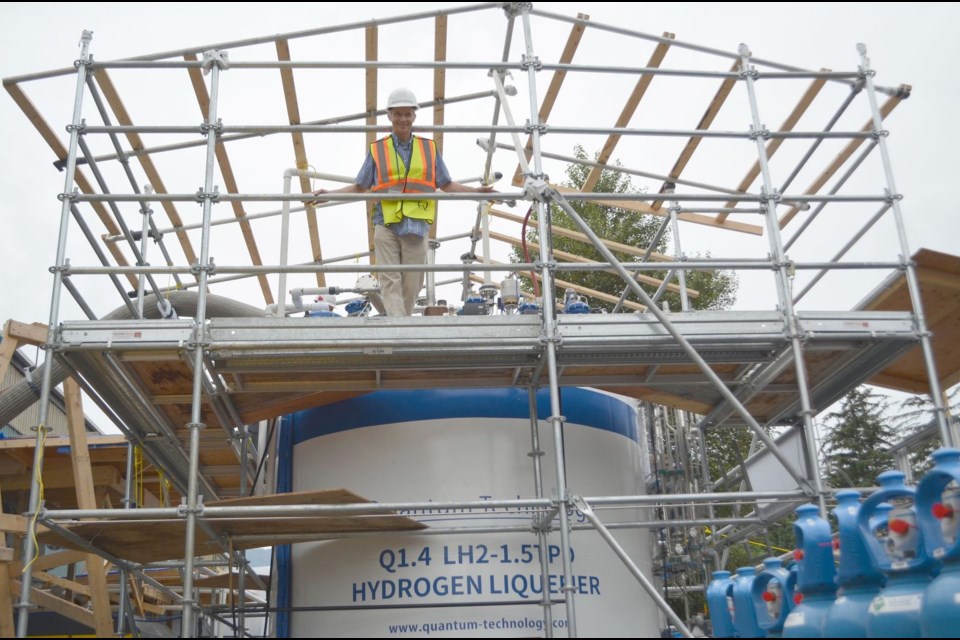To attract investors, a local company is trumpeting its hydrogen liquefier as a potential big player in the future of green energy.
On July 15, Quantum Technology made its case for hydrogen power as the way of the future during a company showcase to prospective partners and government officials.
"Here we are in Squamish where we've got the first 1,500-kilogram-per-day liquefier in British Columbia," company president Calvin Winter told The Squamish Chief.
"Just to put that into context, one kilogram a day is about what a [hydrogen] fuel-cell car or a fuel-cell forklift would use. And so this device by itself is enough for 1,500 cars, to keep them fuelled."
Winter pointed to Amazon's investment of millions in hydrogen fuel-cell forklifts as an example of the adoption of the technology.
Quantum Technology's role, he said, comes in readying hydrogen for transport.
Economically speaking, the cost of transporting hydrogen is prohibitive unless it's liquefied, and that's where the Squamish company can step in.
By providing the means to liquefy the material on a bigger scale, Quantum Technology aims to fill that need.
Winter added that hydrogen has advantages over electric power.
"The electric forklift takes several hours to recharge up," he said. "The hydrogen-powered forklift takes literally just a few minutes to refuel."
This can be a critical difference, especially in places like industrial warehouses where operations need to run around the clock. The same applies to people who can't wait around for an electric vehicle to recharge.
"So, an electric vehicle — you have got to plug it in and charge it up for hours," said Winter. "At the very least for 20 minutes. Even then, you only get a partial charge. [Filling up with hydrogen takes] five minutes, three minutes. It's just like going to the gas station. You'll hook it up. You're up. It's a quick refuel."
Regarding hydrogen infrastructure, there are about half a dozen refuelling stations in B.C. Winter said the company has ambitions to build one in the Sea to Sky.
George Zhang, the company's director of research and development, told The Squamish Chief a liquefier like the one being displayed at Squamish's site costs under $10 million.
Zhang said that the unit has been sold to a company in Europe, where it will likely be used for demonstration purposes. He couldn't provide more details.
He said hydrogen stands out against electric power when it comes to operating heavy-duty vehicles like trucks, trains and ferries.
"It doesn't really make sense to have a one-ton weight of battery on a truck," said Zhang. "It's going to be very expensive and doesn't make sense for holding just hundreds of kilograms."
He said it could help supplement renewables like solar and wind, which can be weather-dependent.
Finally, he also added that it can be a greener alternative to electric vehicles in places where the grid is powered by coal or other fossil fuels.
"B.C. is 100% hydro [electricity]," said Zhang. "So running a Tesla on electrical power is green. But if you go to Alberta, or go to Texas, where electricity is coming from [fossil fuels], what's the purpose, right?"




